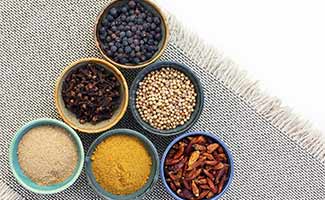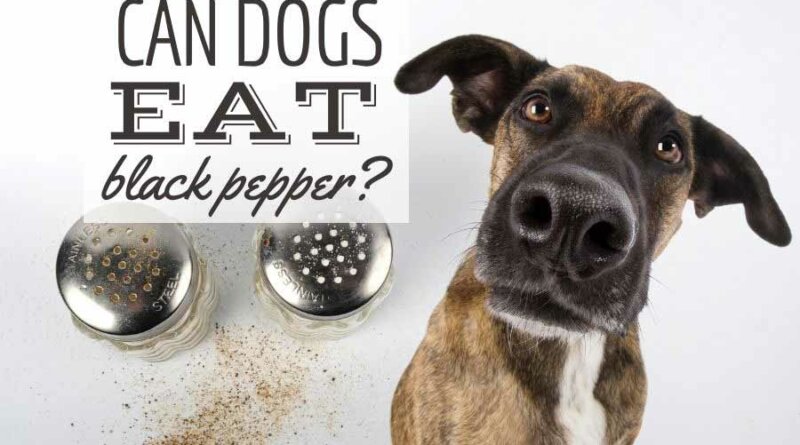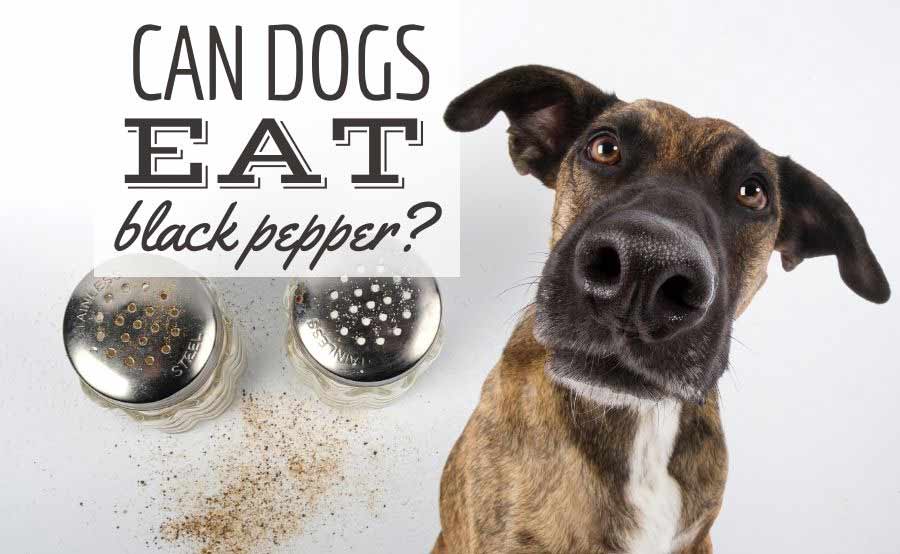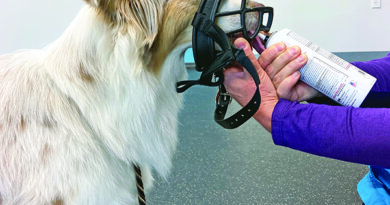Can Dogs Eat Black Pepper? Is Pepper Bad For Dogs? – CanineJournal.com
Is your dog a fan of table scraps and human snacks, but you’re not sure if the seasonings are okay for your pup? Veterinarian Katherine Baldwin explores whether black pepper, salt, and other types of pepper are safe to feed your dog.
We pet parents often consider our furry friends as part of our family, and that may mean them joining in at mealtimes. A lot of people also give their pups “human food” snacks. We know that some foods that are healthy for people are not safe for dogs, but can dogs eat black pepper? Salt and pepper are common seasonings used in a lot of human food. So, before sneaking your furry friend a sly treat, it’s a good idea to find out if dogs can have black pepper.
Article Overview
Is Black Pepper Safe For Dogs?

Black pepper is spicy, a flavor most dogs don’t enjoy. It’s also a seasoning that’s not normally part of your dog’s diet, so he may not be used to the taste. If used in large amounts, many dogs will refuse food with a strong peppery taste. If you’re cooking for your dog, it’s better to avoid seasonings like salt and pepper and concentrate on using fresh, whole foods.
What Happens If Dogs Eat Black Pepper?

Lightly seasoned food shouldn’t be a problem for your dog. However, larger quantities of black pepper can irritate the inner lining of the stomach and intestines. If your dog ingests too much black pepper, you may notice some of these symptoms:
- Vomiting
- Diarrhea
- Abdominal pain
- Indigestion
- Gurgling guts (also known as borborygmi)
If your dog inhales too much pepper — for example, if you spill it on the floor — it may cause an unpleasant sensation in his nose leading to a bout of excessive sneezing. In severe cases, it could irritate the lining of the airways and lungs, leading to breathing problems. You may notice his breathing become noisier or see that he’s making more effort than usual when breathing.
If you’re concerned about your dog’s vomiting, diarrhea, or abdominal discomfort, then it’s best to seek veterinary advice. Any change to your dog’s breathing is considered an emergency, and you should seek urgent veterinary advice.
Does Black Pepper Offer Any Health Benefits For Dogs?
Black pepper is mainly used in human food as a seasoning to enhance the taste of food. It also has some anecdotal benefits for people, including increased metabolism, improved digestion, antioxidant properties, and anti-inflammatory effects. While black pepper isn’t toxic to dogs in small quantities, it doesn’t offer any real health benefits for dogs either. Because of the potentially harmful effects of ingesting too much black pepper, it’s best to avoid it when possible.
Can Dogs Have Salt And Pepper?
Dogs can tolerate salt in small quantities. However, large quantities of salt can be dangerous to dogs. If your dog eats a lot of salt, it can cause him to vomit and be very thirsty. In extreme cases, excess salt ingestion can alter the normal levels of salt in your dog’s blood, leading to an increase in blood pressure and kidney problems. Salt poisoning isn’t likely with the amounts of salt used in seasonings, but it’s important to be aware of the risk.
If you want to share some of your own food with your dog and it contains salt and pepper, then use your best judgment. Meat or vegetables seasoned with a small amount of salt and pepper should be safe in small quantities, but it is best to avoid heavily seasoned foods.
What About Other Types Of Pepper?
If you cook with other types of pepper, you’ll want to know if the following seasonings are okay for your dog.
Can Dogs Have Green, Pink, Or White Peppercorns?

Can Dogs Eat Cayenne Pepper?
You should avoid giving your pup Sichuan and cayenne pepper. These tend to be very spicy and create a feeling of numbness of the tongue, which can be uncomfortable for your dog. Dogs don’t tolerate spicy food, and even small quantities can lead to stomach upset.
Can Dogs Have Hot Pepper?
Hot pepper is not good for dogs. They don’t enjoy the spicy flavor, and it has no health benefits. It’s best to prevent your dog from eating all forms of hot peppers.
Can Dogs Eat Peppercorn Sauce?
You should also avoid peppercorn sauce. Most varieties contain additives, such as garlic, onions, and even alcohol, which are all toxic to dogs. These additives could cause more severe health problems in dogs.
Can Dogs Eat Lemon Pepper?
No, dogs shouldn’t eat lemon pepper. Lemon pepper is a spice mix containing several ingredients, some of which can be toxic to dogs. If your dog gets into a small amount of lemon pepper, it’s probably okay but monitor him closely. If you have a small-breed dog or he eats a large amount, it’s time to call the vet.
Alternatives To Black Pepper For Dogs
Alternative treats could include fresh vegetables such as carrots or broccoli, small amounts of unseasoned, cooked chicken, or doggy treats. Be sure to check the number of calories and fat content in dog treats and reduce your pooch’s normal meal proportions accordingly.
Treats and table scraps should make up less than 10% of your dog’s daily calorie allowance to ensure he receives all the vitamins and minerals needed to keep him healthy and to maintain an optimum weight. Good-quality commercial dog foods are designed to provide all the necessary nutrients your dog needs for the day. Extra treats add extra calories that can lead to weight gain and obesity.
What Human Foods Are (And Aren’t) Safe For Dogs?
We all want our canine companions to be part of our lives for as long as possible. One of the most important ways to take care of your dog is to regulate what he eats, especially human food. A lot of dogs will eat almost anything you put in front of them, so it’s important to know which human foods are safe or toxic for dogs.






Definitive journal of drugs and therapeutics. Read information now.
how to get prescription drugs without doctor
Read here. Medscape Drugs & Diseases.
Read information now. Top 100 Searched Drugs.
ed meds online without doctor prescription
Read information now. Get warning information here.